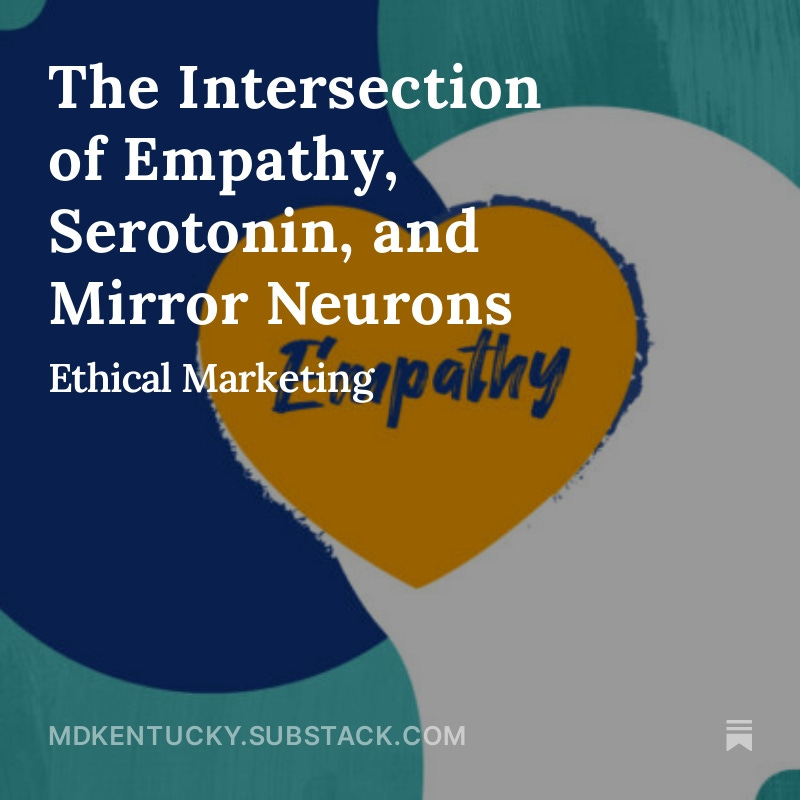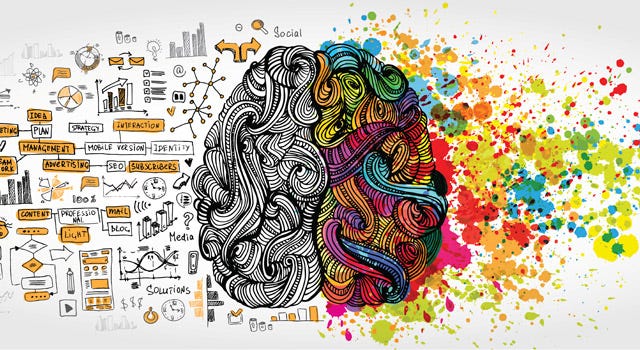It’s easy to get caught up in the targets and the analytics, the hustle to make each campaign bigger and better than the last. But tonight, I’m reflecting on something a bit deeper: the genuine human connections at the heart of what I do as a brand strategist.
It’s about empathy, those tiny mirror neurons in our brains, and the role of serotonin in making us feel good—not just about the products we buy but about the world we live in.
You see, our brains are wired for connection. There's a group of cells known as mirror neurons that literally fire up when we observe someone else experiencing something. It’s like feeling a smile deep inside when you see a child's joy at a playground or wincing when someone stubs their toe.
These neurons are the neurological basis for empathy, and they play a massive role in how we respond to the world around us.
Then there’s serotonin, often called the happiness chemical. It regulates our mood, yes, but it also influences our perceptions of fairness and our social behaviors. It’s what gives us that inner sense of satisfaction when we engage in acts that are beneficial not just for us but for others too.
So, what happens when we apply this understanding to marketing? We start creating strategies that don’t just sell but actually enrich lives and foster positive connections.
The success of such campaigns isn’t just measured in sales. It’s measured in smiles, in stories shared, in communities feeling heard and valued. And this is where we see the true power of understanding the brain's empathy circuitry in marketing.
By fostering genuine empathy through our campaigns, we're not just pushing products; we're building a brand that stands for something more.
While the knowledge of how mirror neurons and serotonin influence behavior can lead to positive outcomes in marketing, there's a darker side to this coin. The unethical use of such understanding can manipulate consumers in ways that prioritize profit over well-being.
Exploiting Emotional Vulnerability: Marketers can craft campaigns that exploit emotional responses—triggering mirror neuron activity by displaying images or scenarios that induce stress, anxiety, or sadness, then positioning their product as a solution or relief. This tactic can lead consumers to associate relief of these negative emotions with the product, irrespective of its actual benefit.
Creating False Necessities: Understanding the role of serotonin in feeling satisfaction and social acceptance can lead to strategies that falsely create a sense of lack or inadequacy in the consumer. For example, suggesting that one's life or social status is incomplete without a certain product or experience can manipulate serotonin-driven satisfaction mechanisms, pushing individuals to acquire things they do not need.
Addiction by Design: Some products are designed to trigger the reward circuits in the brain repeatedly, exploiting the serotonin response to keep users engaged. This can lead to overuse or addiction, where the design is intentionally aimed at keeping a user hooked rather than providing any real value.
These approaches not only raise ethical issues but can also damage trust in the long term. When consumers realize they are being manipulated, the backlash can be significant—harming the brand’s reputation and consumer loyalty.
Ethical marketing, in contrast, builds brand credibility and consumer trust by promoting transparency and genuine value.
It’s not just about making people feel good in the moment. Ethical marketing strategies that leverage our understanding of mirror neurons and serotonin can lead to long-term relationships between consumers and brands. They can elevate the brand experience from transactional to transformative, creating loyalty that lasts because it’s based on positive, shared human experiences.
As marketers, if we can tap into this profound human wiring, harness the power of empathy and enhance it through our work, we’re doing more than just selling. We’re improving lives, one campaign at a time.









